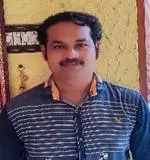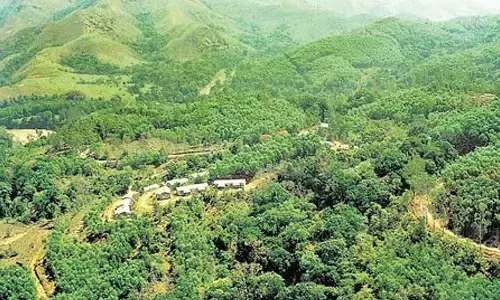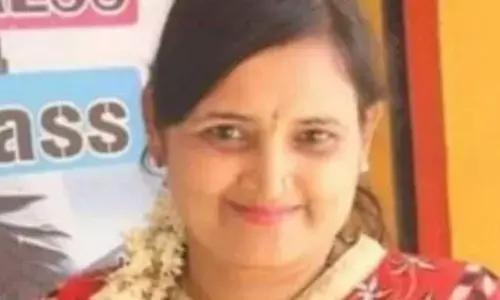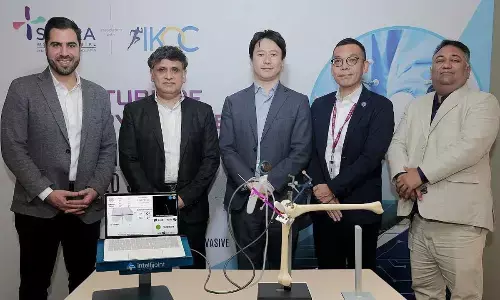A shrine that has a unique architectural structure
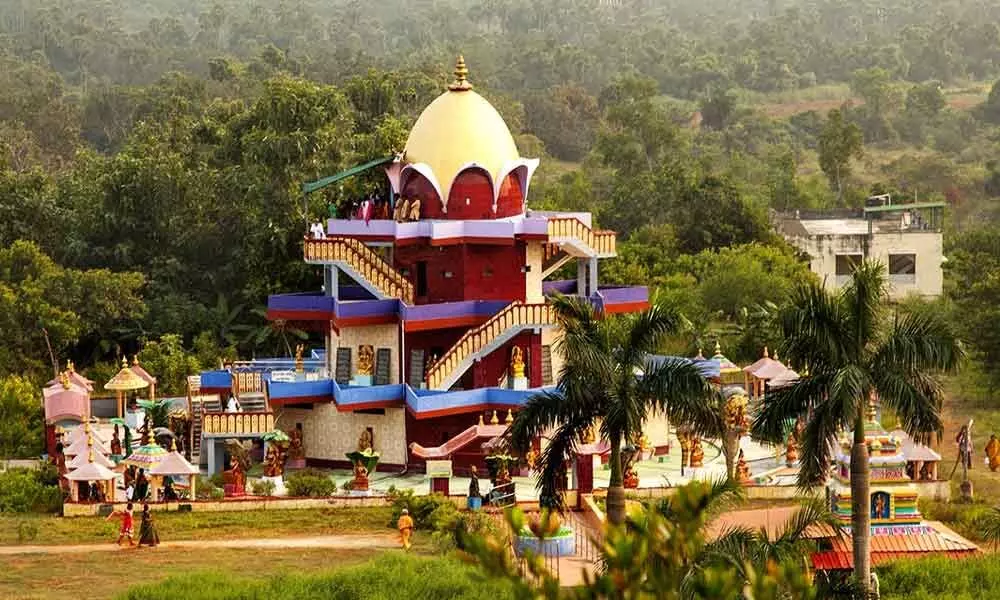
A view of the unique structure of Sri Chakra Meru-shaped temple at Devipuram
With an imposing 54-ft height over a 108-ft square base, the unique architectural design of Sri Yantra Maha Meru is an abode of the thousand-eyed Sri Sahasrakshi Raja Rajeswari Devi at Devipuram.
With an imposing 54-ft height over a 108-ft square base, the unique architectural design of Sri Yantra Maha Meru is an abode of the thousand-eyed Sri Sahasrakshi Raja Rajeswari Devi at Devipuram.
The life-size idols of Goddesses Khadgamala here offer an awe-inspiring sight for the devotees.
As one flips through the chapters of the temple's history, it is learnt that a nuclear scientist at Tata Institute of Fundamental Research- Mumbai N Prahalada Sastry received his first initiation in 1977 to come up with a temple which turned out to be a major turning point in his life. Delving deep into spiritual practices, he soon received Sri Vidya Poorna Diksha from Sri Swaprakasananda Tirtha Hamsa Avadhuta of Anakapalle and was given 'Amritananda Natha Saraswati' title. The intense 'spiritual visions' that he used to witness guided him to create Devipuram temple. Later, after his demise, the temple's taken care by Sri Vidya Trust.
The Maha Meru or Sri Chakra Meru is a three-dimensional projection of the great yantra and it is said to be the mother of all mandalas. The symbols of Ganapathi (Square), Vishnu (Two Waves and a Dot), Surya (Sun with Rays) and Shiva, taken together with the Bindu (Devi), represent the Shakti Pancha Ayatanam (Five Seats of Shakti) in the Meru and form a part of the unique features.
The Sri Yantra Maha Meru with the nine Avaranas depicts all the Khadgamala Parivara Goddesses.
All the Khadgamala deities along with the Moola Virat were consecrated in their respective locations in the Meru, during the Maha Kumbhabhishekam performed in 1994.
The Moola Virat or the main deity of the Sri Yantra Maha Meru is Sri Sahasrakshi Rajarajeswari Devi, who is seated in all regal splendour in eternal union with Siva, at the Bindusthanam.
Sri Chakra Navavarana puja is performed every day, while 'panchamruta abhishekam' is performed on 'pournami' (full moon) and Amavasya (new moon) and are witnessed by scores of devotees who gather near sanctum sanctorum.
Similar to the Kamakhya in Assam, the Kamakhya Guru Peetham is a self-manifested Shakti Peetham, a 'Yoni Peetham' revered by Shakteyas.
At the hilltop, a Sivalayam is where one can offer prayers to Sri Raja Rajeswara who is the Kshetrapalaka (Protector of the region), and Ananda Bhairava Sivalingam. 'Rudrabhishekam' is performed daily.
Datta Guru Peetham, Sri Karya Siddhi Ganapati, Dakshavati that houses 1,365 Sivalingas, Panchabootha Lingeswara Swamy that has 365 spatika lingas form a part of the shrine.
It is believed that if one breaks a coconut at Sri Karya Sidhi Ganapathi sannidhi and completes 28 circumambulations around the temple reciting 'Ganapathi laghu mantra', it will aid in fulfilling the wishes.
Elaborating about the festivals, secretary of Sri Vidya Trust Rama Kandarpa says that all the activities are managed by the trust. "Several festivals and events are performed all through the year. On Bahula Chaturdashi in the month of Magha, Maha Sivaratri will be celebrated with 'abhishekam', bhajans, 'pujas', folk music and dance at the shrine," the secretary explains.
In order to make education accessible to all sections of society, Sri Vidya courses are offered to students as a part of the trust activities
Located over 45 kms away from Visakhapatnam, it is a different experience altogether for the devotees who visit the shrine that exudes tranquility in great measure.

